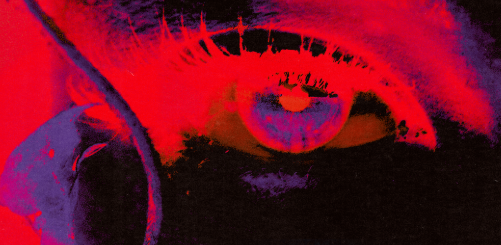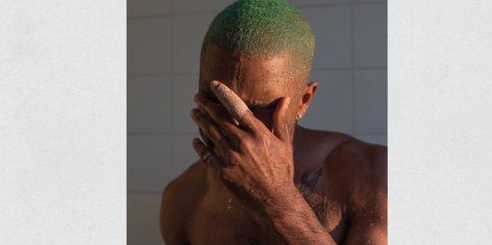Not Just Money by Frank Ocean Lyrics Meaning – Unpacking the Emotional Currency in Frank Ocean’s Poignant Interlude
Lyrics
It’s just money, I’ma make more
No, no no no no no
Please de-condition yourself
It’s not just money
It’s happiness
It’s the difference between happy, being happy and sad
It’s the difference between having a home and living on the streets
That’s what it is, it’s not just money
It’s so much more than that
Right now it’s the difference between you being able to go to a prom
And disappointing a girl
As I told you from the beginning, I don’t have money
I have bills to pay, but that meant nothing to you
Absolutely nothing
Let’s see, I have
Ooh yeah, I’ma make myself a hot link when I get home
It meant nothing to you
Savin’ my seven dollars
Frank Ocean has never been one to shy away from weaving complex emotional tapestries through his music. ‘Not Just Money,’ a terse yet powerful interlude from his acclaimed album ‘Channel Orange,’ serves more as a poetic narration than a conventional song, yet it holds within it a multitude of meanings that resonate with listeners on a visceral level.
On the surface, the interlude features a voiceover from a mother-like figure attempting to impart a lesson on the true value of money to a younger person, perhaps her child. This article delves deeper into the layers of this seemingly simple track, exploring the intricate themes Ocean touches upon, including the intersectionality of happiness, financial stability, and life’s fundamental necessities.
Beyond Currency: Understanding Asset and Worth
Frank Ocean uses ‘Not Just Money’ to question our basic understanding of the role of money in our lives. The spoken word format sheds the complexities often found in musical accompaniment to deliver a raw and unfiltered message. There’s a striking juxtaposition made between the materialistic view of money as an object to be earned and spent, and the idea that it acts as a fundamental cornerstone to joy, to possibilities — to life itself.
The track prompts listeners to re-evaluate their relationship with money by peeling back its tangible nature to reveal its influence on our emotional and psychological well-being. Ocean is not necessarily demonizing the pursuit of wealth, but he’s emphasizing that money plays an integral role in securing elements of life that we often associate with happiness such as home stability, relationships, and experiences.
Decoding the Silent Scream for Normalcy
The unadorned plea, ‘It’s the difference between happy, being happy and sad,’ captures the crux of the interlude’s sentiment. It arguably goes beyond the fiscal implications and touches on a profound societal issue: the dissonance between wealth and well-being. Frank Ocean exposes the raw nerve that our capitalist society often ignores — how the absence of money can translate to an absence of basic human experiences and contentment.
There is a silent scream beneath the words, a call to acknowledge that financial inequity often manifests as exclusion from cultural norms and milestones, such as attending a prom. The simple yet poignant dialogue encapsulates the everyday struggles of those who wrestle to make ends meet, painting a stark contrast to the glorification of wealth and luxury so prevalent in the music industry.
The Hidden Meaning: A Study in Empathy and Perspective
Within the layers of ‘Not Just Money’, listeners might find a study on empathy and the reconditioning of our perspective towards financial struggles. The term ‘de-condition yourself’ serves as a powerful indictment of how we are taught to view money — not just as a medium of exchange but as a defining element of our identity and worth in society.
By inviting us to deconstruct our own biases and preconceived notions about the value of money, Frank Ocean fosters a space for empathy towards those for whom money is not a luxury, but a lifeline. The interlude becomes an appeal to humanize individuals trapped in economic hardship, rather than to stereotype them.
The Most Memorable Lines: Crafting a Vision of Dichotomy
‘It’s the difference between having a home and living on the streets’ — could any line resonate more with the human condition? Frank Ocean uses these words to draw a razor-sharp dichotomy. The starkness of this imagery, of fundamental human security versus disheartening vulnerability, marks one of the interlude’s most compelling contrasts.
Yet, the beauty of Ocean’s composition lies in its minimalism. He doesn’t need a chorus or a verse; he conveys weighty truths through succinct dialogue. These lines will linger long after the album ends, challenging listeners to ponder the true cost of their monetary aims, and whether their pursuit of financial success considers those on the opposite end of the spectrum.
Bearing the Emotional Cost: A Reflection on Personal Narratives
‘As I told you from the beginning, I don’t have money.’ It’s an admission that many can painfully relate to, a statement that tells a personal story of struggle and sacrifice. Ocean doesn’t glamourize this struggle; instead, he lays it bare for the audience to sense the daily emotional toll such a confession carries.
‘Not Just Money’ may be a brief moment in Frank Ocean’s oeuvre, but it encapsulates an entire narrative arc of resilience, pride, and the contrasting realities of chasing dreams versus surviving day-to-day. Each time we listen, we are reminded that for some, the dream can be as humble as having enough — enough for happiness, enough for normalcy, enough for the next day.








